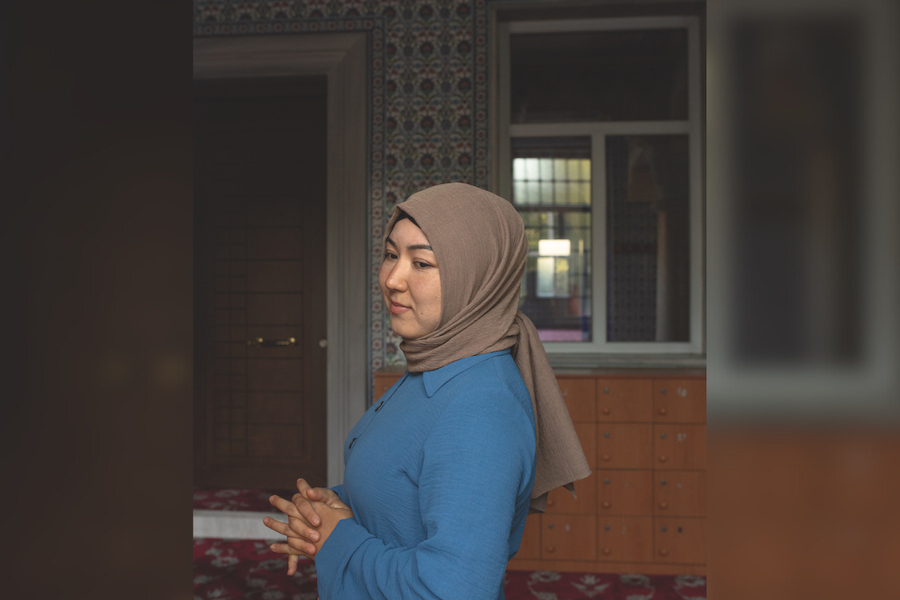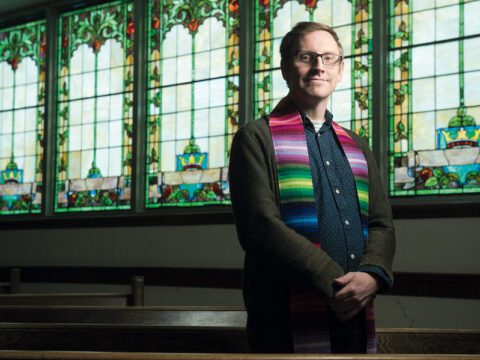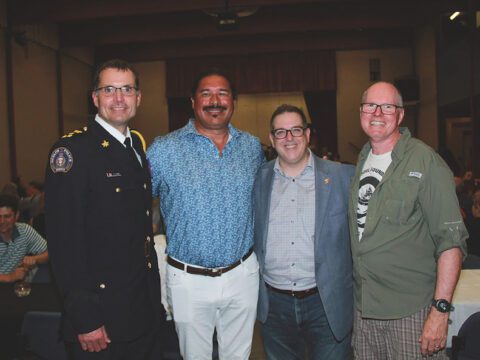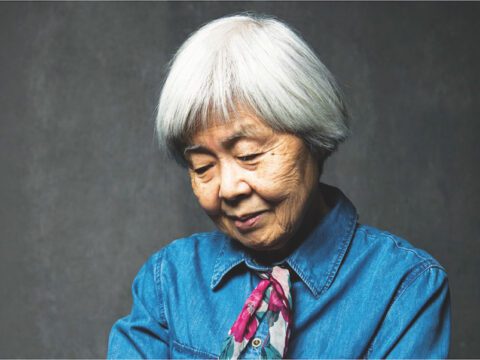For Iparhan Uygur, a 28-year-old master’s student and marketing professional living in Istanbul, Turkey, most of her days pass by comfortably. Some days, she prays at the blue-and-white tiled mosque next to her home. She’s a regular at her neighbourhood café, where she greets the staff by name. Like many young people, she works during the day, studies during the evening and meets her friends for coffee on the weekend. She shares her apartment with a cat named Minnosh.
Yet one thought preoccupies her mind daily: the whereabouts and well-being of her mom. The last time Iparhan heard from her was in June, when she received a sudden warning from her on China’s ubiquitous messaging app, WeChat: “Don’t believe what they say. Never come back here and never talk to me again. I am so afraid.”
Iparhan grew up with her mom in Korla, Xinjiang, a resource-rich autonomous region in northwestern China and the homeland of the Uyghur people, a 12-million-strong Muslim, Turkic-speaking ethnic group. Iparhan’s childhood was filled with dress shopping with her mom and home visits from family and friends where they’d sing karaoke to Uyghur folk songs and move to traditional Uyghur dances. As a preteen, Iparhan became close friends with a Canadian couple from Toronto, Terry and Arlene (whose surnames she cannot recall), who were working in Korla. Every week, she’d practise English with them and introduce them to Uyghur culture and customs.
By age 13, Iparhan was fluent in English — something so uncommon in her hometown that she started a lucrative side gig tutoring local kids in the language. Her roster of students ballooned to 15, and she was soon earning around 12,000 RMB (C$2,300) per month. Iparhan credits her mom for her idyllic upbringing that allowed her to pursue her passions: “My mom gave me everything. She is irreplaceable in my life. Even hearing her voice gives me energy,” she says.
Still, Iparhan longed to see the world beyond Korla. Xinjiang, which many Uyghurs refer to as East Turkestan, offered scarce international economic opportunities for young, ambitious Uyghurs. Upon graduating high school a decade ago, Iparhan moved to Turkey to pursue her undergraduate degree. She stopped hearing from her mom in 2016.
In September 2019, Iparhan received a video call from a family friend in her hometown. She saw her mother on the screen. It was the first time they had spoken in two-and-a-half years. “My mom was much thinner. She lived in cold conditions that gave her searing pain in her knees. Her eyes were ruined from crying every day,” she says. Iparhan learned that her mother had spent the past few years imprisoned in what China calls re-education and training camps for Uyghurs. During their call, Iparhan’s mother “cried loudly. I could see the pain [she endured] on her face,” Iparhan says.
After her mom’s release, the Chinese police frequented the family home in Korla. They made sure Iparhan’s mother was complying with rules for Uyghurs, like keeping her hair uncovered, and asked about her daughter’s whereabouts. Fearing for each other’s safety, Iparhan and her mom seldom spoke after their video call four years ago. “It’s 2023 and the world is connected on so many platforms, but I can’t even hear my mom’s voice, see her face or know that she’s safe,” Iparhan says.

***
Iparhan’s pain is shared throughout the Uyghur diaspora. The People’s Republic of China (PRC) has long sought to stamp out Uyghur resistance to Chinese rule. But in the mid-2010s, the Chinese government initiated a sweeping new crackdown targeting Uyghurs after a spate of violent clashes between China’s majority Han population and Uyghurs in Xinjiang, a conflict largely driven by Beijing’s mass resettlement of Han Chinese into the Uyghur homeland over several decades. The state blamed a series of attacks in the early 2010s — at sites including a street market, a train station and Beijing’s Tiananmen Square — on Uyghur separatists and Islamic extremists. Subsequently, Chinese President Xi Jinping vowed to show “absolutely no mercy” on China’s “struggle against terrorism.”
Beijing publicly framed its crackdown as a benevolent program to provide education and job training for Uyghurs while uprooting Islamic extremism. The authorities implemented a high-tech mass surveillance system in Xinjiang, razed thousands of mosques and barred “extremist” behaviour like men growing beards, women wearing headscarves and food being labelled halal, or compliant with Islamic law. Since 2017, the state has sent over a million Uyghur men, women and children to “re-education” centres and schools in a wide-ranging effort to eradicate Uyghur customs and break family bonds to create a body of citizens loyal to the Chinese state.
The authorities also targeted Uyghurs with ties to foreign countries, such as the parents of young people who went abroad to study, work and travel in places like Turkey, Kazakhstan and Egypt. Beijing wanted to discourage Uyghurs from going public with the repression they faced in China and campaigning for Uyghur rights. Those who left Xinjiang have been unable to go home, afraid they would be jailed upon their return.
The disappearance of family members and inability to contact loved ones back home has become a cruel rite of passage for young Uyghurs abroad. “Whenever I do something, I [ask], for what? I have no family here. Whether I’m happy or heartbroken or if I’ve received a promotion. Nobody is here to share my joys or sadness,” Iparhan says.
Turkey — which is home to roughly 50,000 Uyghurs, one of the largest Uyghur communities in the world — has in recent years forged closer economic and political ties with China, creating an uncertain future for Uyghurs in the country. Some, including Iparhan, are looking overseas for a more permanent home. Last February, the Canadian Parliament unanimously passed M-62, a motion that calls for the resettlement of 10,000 Uyghurs and other Turkic Muslims in Canada starting in 2024. The bill offers a new source of hope for young Uyghurs in de facto exile. Many view Canada as a safe haven where they can live in relative freedom to advocate for their community.
But along with the practical challenges of the newcomer experience such as finding a home and securing a job, Uyghur newcomers must contend with deep-seated pain involving complex issues of family separation, statelessness and cultural erasure. Young Uyghurs must grapple with how to forge a new life without the support of their loved ones.
***
When the Chinese state’s clamp- down on Uyghurs intensified in the mid-2010s, Abdul* was a teenager living in Halalbagh, a village near the city of Hotan in Xinjiang. He enjoyed meeting friends for swims in the local river and to play soccer and walley, a popular traditional game in which players try to hit the smaller of two wooden sticks onto the opposing team’s field. “Life was normal before 2015,” says Abdul, now a 23-year-old Istanbul University graduate with floppy hair and a youthful face.
When Abdul was 15, his life changed. He overheard his father’s conversations with friends while riding in the backseat of the family car: “The government has started building huge prisons. It’s a desert here in Hotan. We don’t have that many criminals. What’s their goal? What’s going to happen?” Shortly after, armed police and soldiers started patrolling Hotan’s streets. They sometimes stopped Abdul, checked his ID and trawled through his phone. One by one, most of Abdul’s friends were arrested, even though they hadn’t committed any crimes.
During this time, the Chinese government started deploying growing numbers of police and high-tech checkpoints in Xinjiang in a bid to quell Islamic extremism, it claimed. The authorities exercised vast powers to stop, search and detain Uyghurs, and even to collect their biometric data — everything from fingerprints to iris scans and DNA samples. The state circulated a list of 75 signs of Islamic extremism, whereby using WhatsApp or a virtual private network was classified as a “pre-crime” that could be grounds for detention. At first, only religious leaders were sent to camps. But by 2017, China’s “war on terror became a program of preventing Uyghurs from being Muslim,” wrote Darren Byler, an anthropologist and assistant professor at Simon Fraser University, in his 2021 book In the Camps: China’s High-Tech Penal Colony.
More on Broadview:
- Uyghur forced labour permeates retail, but you can make a difference this Christmas
- How changes to Canada, U.S. Safe Third Country Agreement are putting refugees at risk
- United Church and National Indigenous Council name Israel-Hamas war a genocide
By the time Abdul turned 16, he was desperate to leave China. “Psychologically, I was already in jail,” he says. Abdul’s parents agreed and sent him to Istanbul that year. He called his parents once a week during his first few months in the city. Abdul learned that the police began hounding his father, asking him for proof of Abdul’s studies in Istanbul. Xinjiang officials eventually took Abdul’s father to a prison because Abdul had gone abroad. Five months after arriving in Turkey, Abdul lost contact with his family. “The first year [in Turkey] was really hard. I felt like I’m not from this Earth,” he says. “Sometimes I cried and wanted to die because I didn’t have any family.”
In 2021, Abdul found his sister’s account on Douyin, the Chinese version of TikTok. He felt a wave of sadness, rather than relief, at seeing his siblings and his mom. His dad didn’t appear in any of the videos. “I couldn’t see any happiness on [my mom’s] face,” he says. Abdul deleted the app and resisted contacting his family, fearing it would trigger harassment from the Chinese authorities.
Abdulkadir Uygur, or Kadir for short, a soft-spoken 26-year-old international relations graduate and activist, similarly lost contact with his family seven years ago when he travelled to Turkey for his first overseas holiday. The police jailed Kadir’s father and older brother because of his trip: “To the Chinese government, I’m a terrorist, and my father was helping terrorists.” His mom called Kadir for the last time that year, saying that he shouldn’t contact her again or else she would be arrested like his father.
“I blamed myself,” Kadir says. “If I never came [to Turkey], my family would never have to experience these bad things.” He started having nightmares and day terrors in 2018. “I dreamt about my father getting beaten in prison. I dreamt I jumped off a building or in front of a train…and felt better after. I thought that if I died, my family would be saved,” he says.
Recently, Kadir heard from a hometown acquaintance that his brother was released from jail in 2021 but had difficulty walking due to the beatings he received in prison.

One of the cruellest aspects of China’s crackdown has been the forced severing of family ties through lost contact, says Bill Clark, an organizer of the Uyghur Wellness Initiative, a U.S.-based network that connects the Uyghur diaspora with mental health professionals who provide their services pro bono. Family networks in Uyghur communities are “very close, [with] first cousins calling each other brother and sister,” he says. Being cut off from this “intimate kinship network…produces psychic damage to people’s well-being.” For Uyghurs living outside of Xinjiang, the trauma of family separation and displacement from their homeland has been compounded by survivor’s guilt — anxiety and helplessness over seeing their loved ones hurt, interned and living under strict surveillance.
Uyghur pain is now “extensive and intergenerational,” says Nurgul Sawut, a Uyghur community leader and clinical social worker in Australia who organizes online therapy for the Uyghur diaspora.
In 2019, Sawut began conducting individual interviews with hundreds of Uyghurs abroad to understand how their experiences affected their home lives, mental health and overall wellbeing. Most young people reported having trouble focusing on school. They felt conflicted about their Uyghur identity, which seemed to be intertwined with pain and sadness. Uyghur adults struggled with insomnia and fatigue and expressed that they were prone to emotional withdrawal and sudden bursts of sadness or anger. Single parents — whose partners had disappeared — spoke about their inability to explain to their kids if, and when, the other parent would return home.
***
Turkey’s growing rapprochement with China has granted Beijing leeway to pressure Uyghurs in that country, creating an atmosphere of fear and unease for Uyghurs living there. Chinese police have monitored Uyghurs in Turkey, often contacting them via their family members to coerce them into spying on other Uyghurs or spreading pro-China messaging.
In 2019, the Turkish police warned Kadir that Chinese agents were following him. They told him to lock his doors and to always walk with others. In 2020, Chinese authorities sent Kadir photos of his mom hugging Chinese officers and praised her “hospitality.” They offered him the chance to connect with his mom again — if he became an informant for the authorities. He declined their offer. Since February 2023, a Uyghur man who calls himself Arman has regularly messaged Iparhan on WhatsApp. He claims to be a relative and sends her videos from her mom’s home in Korla, pressing Iparhan for information about other Uyghurs in Turkey.
Turkey granted citizenship to some 8,000 Uyghurs in 2021, according to one Uyghur rights group. But many Uyghurs in Turkey are using expired, or soon-to-be-expired, Chinese passports — effectively forcing them to live as stateless exiles fearing deportation and lacking the right to work or travel. Amid this environment, the sense of security and stability Canada offers is especially appealing, along with its public commitment to human rights.
Immigration, Refugees and Citizenship Canada (IRCC) is currently developing its resettlement plan for motion M-62. For now, Uyghur civil society organizations from Ottawa to Istanbul are recording the names and contact information of those in the diaspora interested in living in Canada. In Istanbul’s Fatih neighbourhood, the human rights group World Uyghur Congress was at one point registering anywhere from 50 to 100 people per day. Applications continued arriving in varying numbers until October, when the process was temporarily put on hold. Half of those who have put their names on the list are aged 35 and under. Iparhan, Abdul and Kadir have all registered their interest in moving to Canada, but their acceptance is not yet guaranteed.
The IRCC declined to release details about its resettlement strategy before the planning process concludes “to protect all those involved,” a department spokesperson told Broadview. Canada will likely begin resettling Uyghurs in late 2024. Like all newcomers to the country, Uyghurs will receive access to government-funded settlement services. The support includes language training, employment services, childcare, transportation assistance and crisis counselling. The government has previously delivered similar packages — formally known as Refugee Assistance Programs (RAP) — for Afghan, Syrian and Tibetan refugees arriving from third countries.
Still, specialized mental health services, such as workers trained in dealing with trauma and PTSD related to persecution and war, aren’t standardized under the program and fall under provincial jurisdiction, says Jennifer Hyndman, a York University professor whose research focuses on refugee resettlement and integration in Canada. Larger cities generally have greater and more specific resources at their disposal. Non-profit bodies like Toronto’s Canadian Centre for Victims of Torture and the Vancouver Association for Survivors of Torture offer treatment and support to help refugees heal from trauma and integrate successfully. A case could be made for settling refugees in big cities where such services are accessible, she says.
But perhaps equally as important is proximity to their community. Supporting newcomers to live near family members and other Uyghurs who know the systems, can translate, and offer things like collective childcare options “can be invaluable in building networks and safety nets,” Hyndman says.
Federal regulations do not allow government-funded settlement agencies to provide services for only one nationality or ethnicity. But any resettlement strategy should incorporate Uyghur-led initiatives that can help fill in the gaps and cultivate a sense of community and belonging, activists and scholars say. Sawut advocates for spaces like community centres that offer Uyghurs a safe haven to learn about topics like mental health and Canadian customs. “We need to make sure to let community members know that there is support if they need it,” she says.
***
During his seven years in Istanbul, Abdul has poured himself into learning: about Islam, world religions and the English language. During his free time, he volunteers as an English-language guide at the Hagia Sophia — one of Istanbul’s most iconic sites — recounting Byzantine and Ottoman history to tourists, and the links between Islam and Christianity. In Canada, Abdul hopes to pursue his master’s degree and start working. Being away from home has inflicted “big damage [on] our souls,” he says of Uyghurs in Turkey. But he believes he can find a job and a fresh start in Canada. “I want to live happily, and I want to do my best… because being miserable is not helpful for me and for my family.”
For Kadir — who received a year of mental health counselling in Turkey — therapy and campaigning for Uyghur rights have given him a renewed sense of purpose. A new life in Canada would give him greater freedom to exercise his rights and a bigger stage to advocate for other young Uyghurs struggling with trauma. For Iparhan, Canada offers a place she can again call home: she plans to live with her mom’s cousin in Montreal, reconnect with Terry and Arlene, and feel settled enough to finish her master’s thesis.
Young Uyghurs’ drive for a new life in Canada testifies to their strength and resilience. But Uyghurs, and those who support them, understand that full healing will begin when the injustices back home in Xinjiang end.
The most visible aspects of China’s crackdown have now subsided. Officials have shuttered some camps or repurposed them into other facilities, like schools or government buildings. Beijing says that those who “graduated” from the camps have received education and training and been dissuaded from extremism. Analysts and human rights groups say that authorities have moved hundreds of thousands of Uyghurs from camps to high-security industrial parks in the region, while the number of Uyghurs in China’s formal prison system has surged. Uyghur children, meanwhile, have been sent to boarding schools that aim to stamp out Uyghur culture and language.
The Chinese government has also embarked on a PR blitz, splashing out on influencers to portray Xinjiang as an exotic oasis for tourists. Yet recent visits by international journalists reveal a heavily surveilled and policed region.
Uyghurs abroad remain unable to speak freely or to reunite with their families in Xinjiang. Among the U.S.-based community, Bill Clark of the Uyghur Wellness Initiative says that some have been granted weekly calls with their families back home — but the authorities sit in on these conversations, and people “can’t say anything of meaning or from the heart.” In the course of reporting this story, two young Uyghurs I spoke to discovered that their fathers had died in the camps.
As Abdul says: “We don’t want to fight against the Chinese [government]. We want our rights. We want to live as humans. And I want to provide my family with these rights.”
* Last name withheld to protect his identity.
***
Yvonne Lau is a journalist based in Vancouver. She was living in Istanbul when she researched this story.
This story will appear in Broadview’s January/February 2023 issue with the title “Young and Stateless.”















